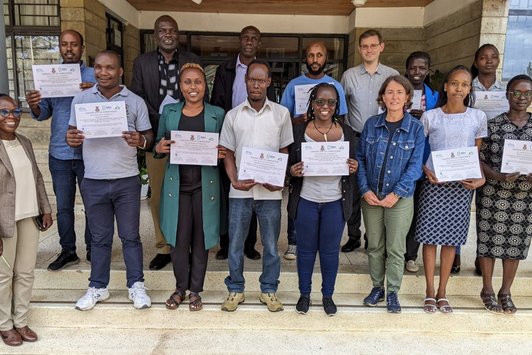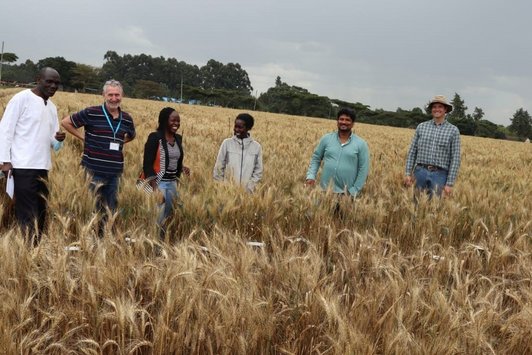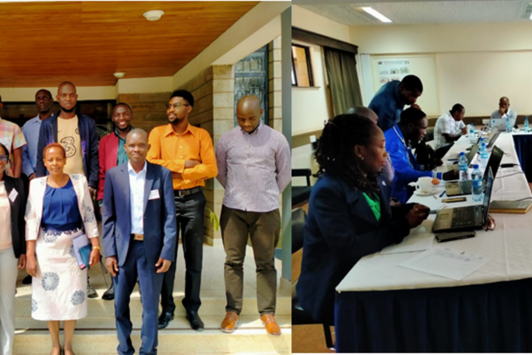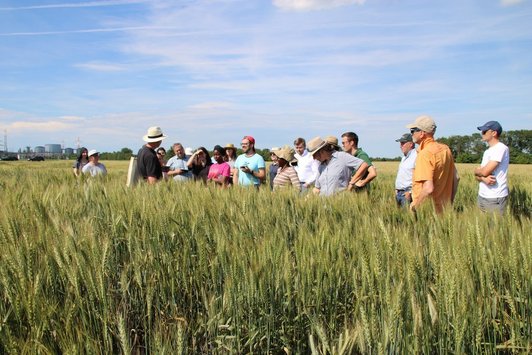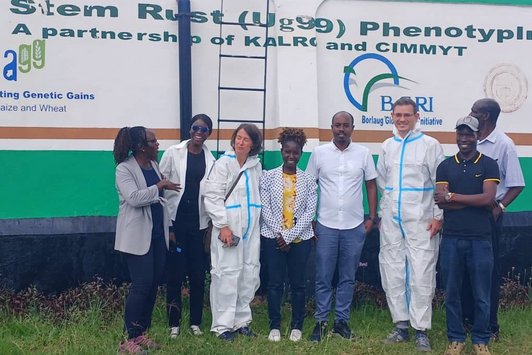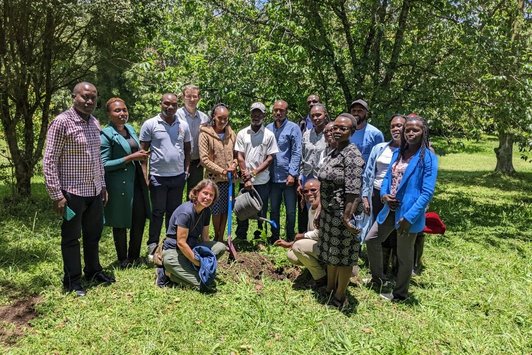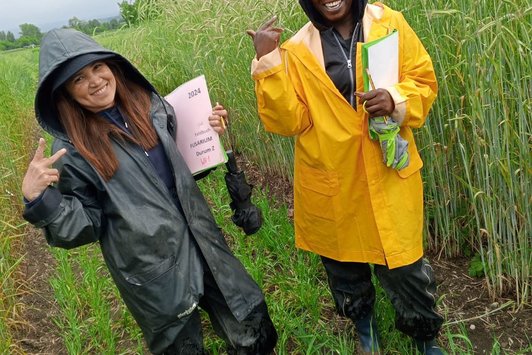Project completed: P059_Kenya
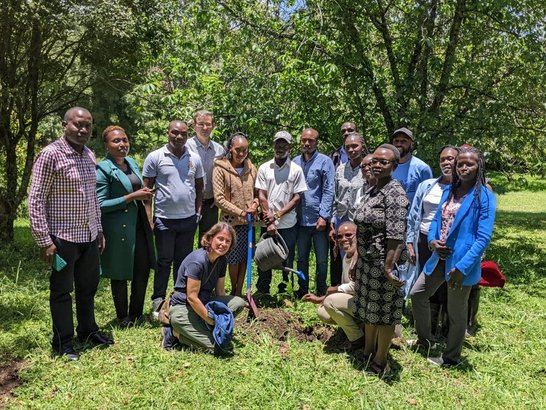
Sustainable networks for using next generation quantitative genetics to modernize breeding programs in Kenya
Cooperating countries: Kenya and Austria
Coordinating institution: Egerton University (EU), Mercy Wamalwa, mercy.wamalwa@egerton.ac.ke, mercyamwogah@gmail.com
Partner institution: University of Natural Resources and Life Sciences Vienna (BOKU), African Centre for Technology Studies (ACTS)
Project duration: 1 June 2022 - 30 May 2024
Budget: EUR 25.000
Abstract:
With the growing population there is increased demand for food, feed and raw materials, hence there is a need for increased productivity in agriculture. Among other measures, such as improved crop management, integrated crop protection and prevention of losses in the field and after harvest, improved crop cultivars will play a central role for sustainable agriculture. Resilient and regionally adapted crops are the cornerstone for sustainable crop and food production. Breeding improved and resilient cultivars has traditionally been based on the generation of diversity followed by phenotypic selection. Breeding can be supported and advanced by integrating traditional plant breeding methods with recent molecular breeding tools. However, African scientists lack the necessary skills to take advantage of the latest and advanced quantitative genetics (genomic selection) and mutation breeding methods which has been shown to accelerate and increase crop breeding efficiency. The use of quantitative genetic tools plays an important role in this respect. By combining phenotypic traits with DNA fingerprinting and pedigree data, genomic estimated breeding values of cultivar candidates can be obtained with greater accuracy and, consequently, increase genetic gains from the selection. Importantly, these quantitative genetic tools can shorten the time to develop improved crop cultivar to meet the imminent food increase in food demand.
This project aims to form a sustainable network between scientists from Kenya and Austria to maximize the use of next generation quantitative genetics to improve breeding programs in Kenya. This work will make major contributions to breeding programs leading to increased productivity, contribute to food and nutritional security, lower production costs while leading to economic empowerment. We aim to focus particularly on quantitative genetic methods such as genomic selection and mutation breeding that are affordable at low cost, therefore accessible and applicable to researchers and breeders working in breeding programs with limited financial resources.
Summary:
Sustainable networks for using next-generation quantitative genetics to modernize breeding programs in Kenya’ (Gentwork) project focused on modernizing plant breeding techniques in Africa. The work incorporated both theoretical and practical approaches, including phenotypic analysis, genetic evaluation, and genome-wide association mapping, to enhance breeding programs.
Three objectives have been accomplished; Introductory Workshop on Statistical data analysis of plant breeding data using the open-source software package R and general introduction to genomic selection (GS); Scientific exchange visits and Training on Navigating from Phenotypic Analysis to Genomic Selection Training.
This project has resulted to sustainable network between scientists from Kenya and Austria as they are partners in different other projects contributions to breeding programs leading to increased productivity, contribute to food and nutritional security, lower production costs. The project accomplished two trainings. The trainings were a resounding success, equipping participants with the technical skills necessary to integrate next-generation quantitative genetics into plant breeding programs in Kenya and across the region. By fostering collaboration between African and European institutions, the project laid a foundation for the sustainable modernization of breeding programs. The skills and networks developed during this training are expected to have a lasting impact on the participants' research and professional activities, contributing to agricultural advancements in the region.
These trainings mark an important milestone in the journey toward more efficient and modern breeding practices in Kenya and Ethiopia, leveraging genomic selection and advanced quantitative genetics to address pressing challenges in crop improvement.
Through the exchange visits, partners gained knowledge and skills on quantitative genetic methods such as genomic selection and mutation breeding that are affordable at low cost, therefore accessible and applicable to researchers and breeders working in breeding programs with limited financial resources. Some of the skills have been transferred for instance developing of a mutant population for a graduate student to work on at Egerton University under the supervision of Dr. Wamalwa is ongoing.
The approach demonstrated how modern molecular breeding techniques can be applied in standard genetics laboratories without requiring expensive equipment, integrating quantitative genetics into African breeding programs presents an opportunity to improve food security and agricultural sustainability by developing crop varieties that are resilient to climate change, pests, and diseases.
The project highlighted challenges in applying quantitative genetics in developing countries, including limited funding, weak biotechnology policies, and restricted access to genomic tools, showing that with the right investment in technology, research, and training, Africa can significantly modernize its breeding programs.
